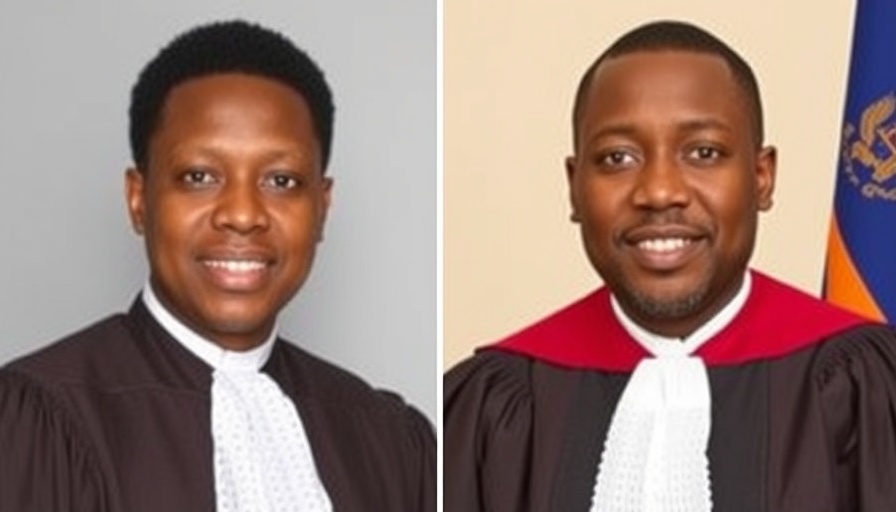
Suspended Appointments Unearth Judicial Controversy in Africa
The Comesa Court of Justice has hit a significant roadblock in the appointment of new judges, following an injunction filed by Ethiopian national Tewodros Getachew Tulu. The ruling suspends the inauguration of the judges-elect from an election held in November 2024, prompting an examination of procedural integrity within judicial appointments in Africa.
Allegations of Misconduct Bring Judicial Appointments into Question
Tewodros, who claims to be aggrieved by the election process, alleges that Secretary-General Chileshe Mpudu Kapwepwe overlooked established rules, allowing an ineligible candidate, Mauritian A. F Chui Cheong, to participate in the elections. His evidence indicates that Cheong, having retired from the Mauritius Supreme Court, should not have been considered for the role. An unusual twist in the case is the Secretary-General's alleged failure to officially notify the Registrar of Cheong's purported withdrawal, which raises questions about transparency in the entire process. Tewodros stated: "The conduct of the Secretary-General regarding the election... did not follow the court's established Rules of Procedure."
Implications for Governance and Legality
The developments spotlight not just the Comesa Court but the broader issue of governance and rule of law in Africa. As investment and foreign relations depend on trust in judicial systems, any specter of corruption can dissuade foreign investment and undermine African economies. More than just a procedural flaw, Tewodros’s challenge amplifies concerns regarding the integrity of judicial appointments across the continent—illustrating how such issues can resonate far beyond the courtroom.
The Bigger Picture: Global Stakes in African Politics
As international relations evolve, the integrity of judicial processes in African nations remains crucial, particularly for foreign investors and policymakers tracking geopolitical dynamics. With the African Union and other international entities keeping a close eye on governance trends to avoid reputational damage, the outcomes of such judicial challenges will intricately influence Africa's role within global trade networks and diplomatic relations.
As countries like Ethiopia seek to strengthen their legal frameworks amid increasing global scrutiny, stakeholders from business leaders to policymakers must pay attention. The resolution of this case will serve as a litmus test for governance effectiveness in Africa, emphasizing the importance of following due process within judicial systems.
In light of this controversy, interested parties are encouraged to engage in dialogues regarding governance best practices and advocate for stricter adherence to established legal protocols. It’s imperative to ensure transparency and uphold the integrity of judicial systems, crucial for fostering confidence in the broader African market.
 Add Row
Add Row  Add
Add 


 Add Row
Add Row  Add
Add 

Write A Comment